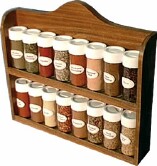Regularly eating chili peppers, other spicy foods linked to lower mortality risk during study period
WEDNESDAY, Aug. 5, 2015 (HealthDay News) — Adults who regularly eat spicy foods appear to have a reduced mortality risk, according to research published online Aug. 4 in The BMJ.
Lu Qi, M.D., Ph.D., an associate professor of medicine at Harvard Medical School in Boston, and colleagues conducted dietary and health history surveys among 199,293 men and 288,082 women from 10 different regions in China. The participants were between the ages of 30 and 79. People with a prior history of cancer, heart disease, or stroke were excluded from the study. The median study follow-up was seven years. During that time, 20,224 participants died.
The investigators found that eating spicy foods as little as once or twice a week was associated with a 10 percent drop in the overall mortality risk during the study, compared with eating such foods less than once weekly. Eating spicy foods between three and seven days per week appeared to lower mortality by as much as 14 percent, the authors reported. Fresh chili peppers — among the most commonly used spicy foods — were specifically linked to a lower risk of dying as a result of cancer, heart disease, and type 2 diabetes.
These findings held up across gender, and even after accounting for differences in age, education, sedentary patterns, and marital status. That said, the protective effect of spices was found to be even greater among those who did not drink alcohol, the researchers found. “Human studies are sparse. But all these mechanisms may potentially contribute to the protective effect we saw, which I think would equally apply to other populations, such as Americans,” Qi told HealthDay. Qi is also an associate professor of nutrition and epidemiology with the Harvard T.H. Chan School of Public Health in Boston.
Copyright © 2015 HealthDay. All rights reserved.








